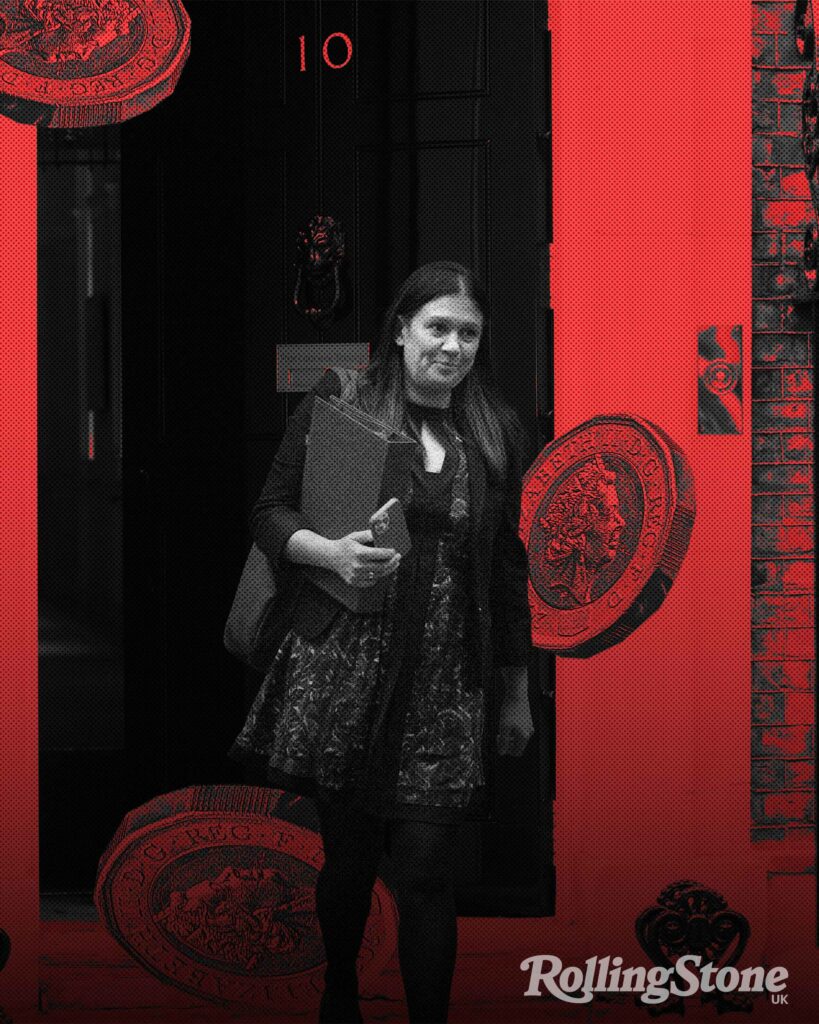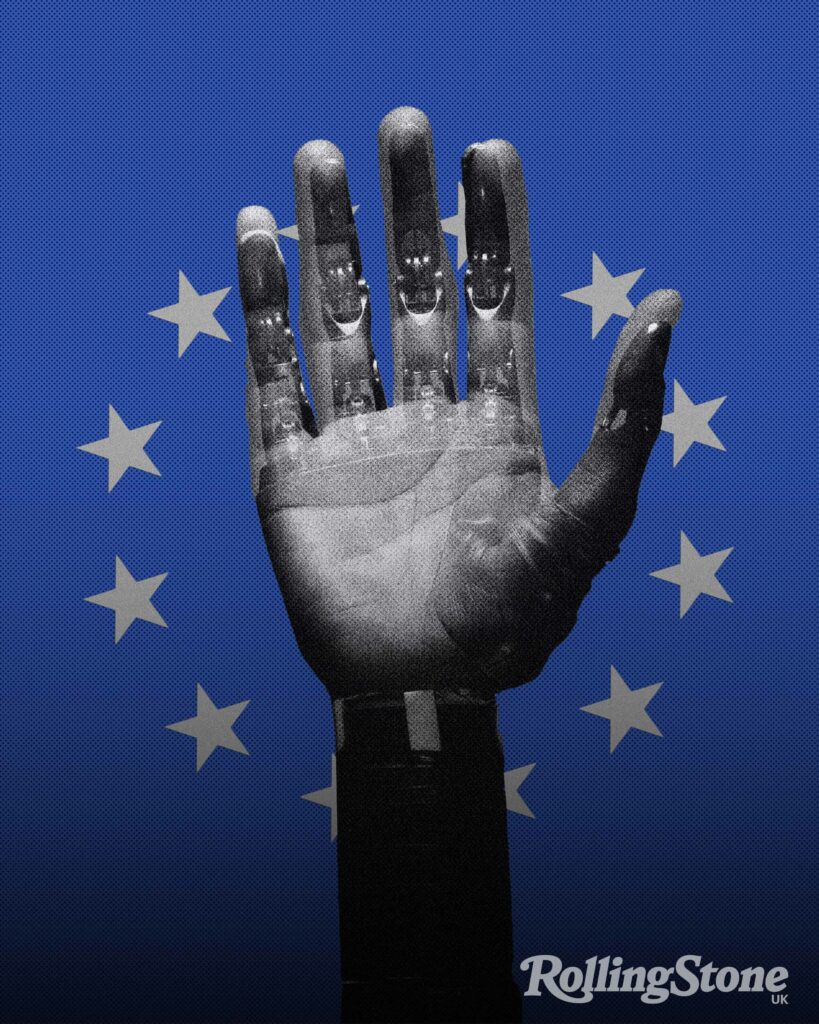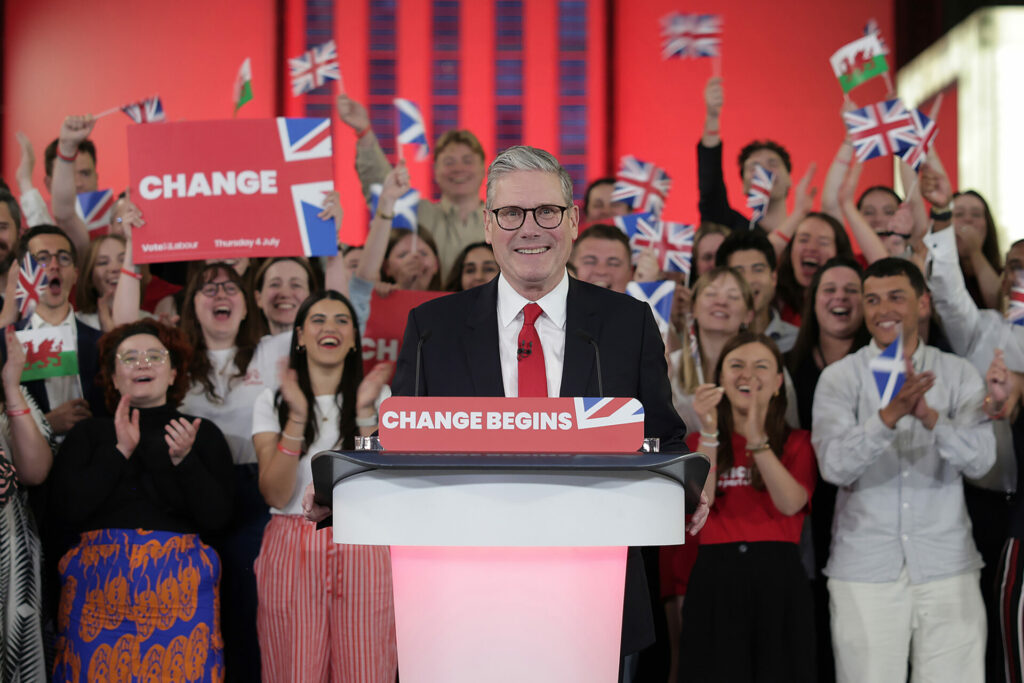Why it‘s time for Keir Starmer and Labour to face the music
Ahead of Sir Keir Starmer's first Labour Conference speech as Prime Minister, the UK music industry is calling for the new Labour government to make essential changes to rescue British music.
By Nick Reilly

To quote one Bob Dylan: “the times they are a-changin’”. After 14 years of Tory rule, 4 July saw a changing of the guard in British politics as Sir Keir Starmer stood on the steps of Downing Street to mark the start of a new Labour government and — according to the man himself — a decade of national renewal.
Not that the result was ever in doubt, however. A cursory look at polls over the preceding year showed that a Labour landslide was very much on the cards, and it seemed like those aforementioned Dylan lyrics were about to ring true.
In turn, it meant that key voices in UK music were given a chance to prepare for the expected change in administration. On the morning of 4 July, they struck a warm — if somewhat cautious — note about what lay ahead for the Starmer administration.
In a bold message to the PM, UK Music CEO Tom Kiehl stressed that Labour had been given a “huge mandate for change”, but also explained that it would be far from plain sailing.
“The incoming Labour government has been elected on a platform to implement a plan for the creative sector as part of its industrial strategy. The potential of the UK music industry to contribute to growth must be at the heart of this plan,” explained Kiehl.
From post-Brexit touring to the existential threat facing independent venues, it’s fair to say that the DCMS (Department for Culture, Media and Sport) — led by Culture Secretary Lisa Nandy — has got a lot of work to do.

Education, education, education
Growth, as Kiehl suggested, should be at the heart of any Labour strategy when it comes to music, and it starts with education.
In their manifesto, Labour pledged to launch a new National Music Education Network — a one-stop shop to boost access to courses and classes for parents, teachers and children. Now music bodies want them to follow through on this promise.
“This is now an opportunity to reset the dial on music education,” Kiehl tells Rolling Stone UK. “I think fundamentally it’s about a pipeline of talent that it provides, which can come through equality of opportunities,” he says. “Talent is everywhere, but opportunity isn’t, so if music in schools is diminished or people don’t have that opportunity, then we can’t create future talent.”
Kiehl, who also voiced concern about the loss of 1,000 music teachers in his 4 July letter, added, “We’ve seen creative subjects diminished and we need to make sure that music education is a priority under this government to achieve further progress within schools. But I think there’s a lot of willingness within the sector to support that.”
Nurture the grassroots
Kiehl’s comments about securing a pipeline of talent resonate with Mark Davyd, the CEO of the Music Venue Trust (MVT). The organisation has been instrumental in banging the drum for the existential threat faced by small venues within the UK and their week has been recognised in high places – last week Coldplay announced that ten per cent of all their proceeds from their upcoming UK stadium tour will go to the organisation.
The threat that the MVT highlight so well was hammered home last year when Bath venue Moles — which hosted early gigs by the likes of Oasis and Radiohead — announced that operational costs had forced its closure.
In the wake of this, the MVT’s annual report for 2023 revealed that 125 grassroots music venues in the UK had closed over the previous 12 months.
“It’s a very young government, but the reality is that small venues are still paying 20 per cent VAT on tickets that are losing them money. That makes no sense,” says Davyd. “They’ve had no certainty on their business rates, and we still have a massively distorted music industry in which a tiny, limited number of companies and individuals are making extraordinary amounts of money while we are dealing with venues that are going to have to close down because they haven’t got a thousand pounds.
“But I’m not negative and we have to be practical too,” says Davyd. “We realise that DCMS was probably busy with the Olympics when the government came in, and stuff wasn’t going to happen straight away. But I reckon that tolerance will probably only last until the middle of September. At that point, a failure to do anything is as serious for this government as it has been for previous governments.
“I’d say the same about the music industry. There isn’t anyone left who doesn’t know we have huge issues with grassroots pipelines, grassroots promoters and grassroots venues. I’d stop posting your incredible results for each quarter until you address that, because it’s getting a bit embarrassing. The biggest companies in the world telling us they’ve never made so much money, seemingly unaware that venues in countries such as Germany and Italy aren’t closing down. It seems there’s a lot of just not doing the most obvious things going.”

He adds, “If I was Lisa Nandy, I’d call the music industry in and explain that the expectation and responsibility is on them to act and secure the future of live music in our communities. And if you don’t do it, we as a government will act to make you do it. If she said that, I promise you we’d have the music industry properly engaged and within a week there would be solutions on the table. She doesn’t necessarily need to do that, but she needs to let them know the clock is ticking.”
Davyd also stresses that extending business rate reliefs — as outlined in the MVT’s Manifesto for Grassroots Music — will also be of massive importance. “It will prevent a mass closure of venues in 2025 and won’t cost them any money,” he says.
The MVT Manifesto was published before the election and saw the MVT urge any winning party to “seize the moment” as they offered a five-step guide setting out how to secure the future of grassroots music.
Among them was the fairly straightforward pledge that £1 from every stadium and arena ticket should be donated to support grassroots music venues, artists and promoters.
“I think that’s going to happen,” says Davyd. “The question is whether it happens because these multinational corporations have a structure that permits them to do it voluntarily, or whether they will have to be forced by Labour and other governments around the world. Redistribution of wealth is complicated, and the question is going to be ‘OK, where’s your plan for communities to access music?’ You can’t just have these companies taking all the money out at the top and not contributing anything on the way down.”
There’s been real excitement for the plan from artists, too. Earlier this year, Lily Fontaine from the now-Mercury Prize-winning English Teacher simply warned that a lack of music venues risked homogenisation.
“If you can’t support artists who are signed to a major label and you can’t support artists at a lower level, then how is anyone without money or from a regional area where they don’t have access to venues going to have an opportunity to create music and tour it?” she told a Commons Select Committee.
“That leads to a homogenous music industry, which leads to less diverse music scenes. If there are less diverse music scenes, then music as one of our biggest exports is then diminished,” she said.
But even if the £1 ticket pledge is approved, there’s still the small matter of punters being shortchanged at those big gigs too. Days before Rolling Stone UK went to print, tickets for the hugely anticipated Oasis reunion went on sale via Ticketmaster — but the initial excitement was immediately overshadowed by dynamic pricing.
The practice was introduced by Ticketmaster in 2022, with the ticketing giant claiming that it was introduced to stop touts and ensure a greater percentage of money goes to the artists. It works on the model that prices will go up where demand is high, but many have accused Ticketmaster of ripping fans off.
Labour’s response, in fairness, was as swift as anyone could have hoped. On the first day back after the summer recess, Culture Secretary Lisa Nandy labelled the practice “depressing” and says she wants to end “rip-off resales” and ensure that tickets are sold “at fair prices”.

Remove red tape
Labour’s relations with Europe could also play a key role in the future of music for touring musicians, too. Starmer has promised to reset the UK’s post-Brexit relations with the EU, while a manifesto pledge said the government would “seek arrangements with the EU to facilitate easier touring and cultural exchange”.
Before the UK left the EU, touring musicians could pack up their instruments and head across the continent to spread their music in a heartbeat with relatively little difficulty. Post-Brexit, however, it is a trickier thing altogether.It’s a tangled web of red tape, including but not withstanding visas, work permits and carnets — a sort of instrument passport that musicians must have for every bit of gear they’re taking on the continent.
It’s had a significant impact, too: eight out of 10 Brexit-hit musicians revealed that their earnings had plunged since the UK left the EU, a 2023 UK Music survey revealed.
“Playing shows in Europe, the way that you’re supported as an artist, is wildly different and as the country that Europe looks to for music, it’d be nice if it matched up in the same way. And f**k carnets!” Fontaine told Rolling Stone UK at Glastonbury this year.
DCMS failed to respond in time to Rolling Stone UK’s questions on the matter, but there is that aforementioned pledge, as well as Chancellor Rachel Reeves’ vow to create a touring visa to eradicate some of the issues.
“I think Labour recognised the issues within their manifesto, but the big question now is getting the European Union to take that seriously and to ensure we can work collectively with those institutions to find a workable situation,” explains Kiehl.
“There’s been a new mandate for change, and we’ve seen willingness from Lisa Nandy and Chris Bryant — who have the ear of the Prime Minister — to make sure that the case of DCMS becomes a strong voice within parliament and government.”

Protect creativity
In other areas of the music industry, there’s the looming threat of artificial intelligence and the understandable argument that it could take away the work of songwriters.
“We need the government to truly value songwriting and composing, which have been chronically undervalued,” said Ivors Academy CEO Roberto Neri in a statement. He continues, “This means prioritising the creative forces behind the music — songwriters and composers — over big corporations and tech giants.
“Our agenda is clear: strong intellectual property protections, effective regulation of AI, support for freelancer wellbeing, challenging exploitative industry practices, and nurturing future talent through music education and cultural investment.”
Kiehl says: “We’ve worked on tackling AI for the last two years, and when the previous government proposed watering down copyright to favour companies, we pushed back quite heavily on that and the government eventually rowed back on their plans.
“They discussed having a code of conduct with AI, but that didn’t materialise, so we reached a bit of an impasse.”
He adds, “AI is a tool that the music industry is well versed in, and there’s some benefits in terms of identifying piracy for one example. But there’s some negatives too, particularly where large language models are taken without consent and no compensation. That’s a fundamental issue, and we think there should be stronger protections surrounding AI — both in terms of transparency but also labelling output so that consumers have greater awareness about what’s being given to them.”
Kiehl adds there’s been positive discussions with Chris Bryant about the issue at a UK Music roundtable — and seemingly a sense that it’s early days both for Labour and their efforts to tackle these crucial issues. Oh, and it helps that they’ve apparently got a true music fan on their side too.
“Keir Starmer’s favourite album is You Can’t Hide Your Love Forever by Orange Juice, a slightly obscure indie album,” reflects Davyd.
“I don’t think it’s difficult for Keir Starmer to remember what it felt like to hear that album — his favourite of all time — and to think about the story of how it came into being.
“It’s about independence, it’s about bringing together a community of musicians, and it’s about mavericks doing things that other people weren’t doing at the time. They just need the existing spaces and infrastructure to be allowed to do that…”
Taken from the October/November issue of Rolling Stone UK – you can buy it here now.
